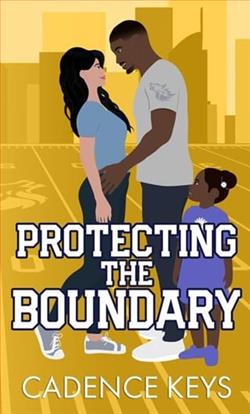Page 102 of Sacred Hearts
“This contains the voices of those who have been pushed to the margins of our Church—not because they lack faith or love for God, but simply because of who they love.”
I nod to the technician, and the lights dim as a projection screen descends.
“What you are about to hear and read are excerpts from over ten thousand testimonies from Catholic faithful around the world.”
The first testimony appears on screen, and I read it aloud:
“‘I was sixteen when I realized I was gay. I prayed every night for God to change me. When nothing changed, I believed God had abandoned me. I attempted suicide twice before my twentieth birthday. I still attend Mass, but I sit in the back and leave before Communion. I don’t believe I’m welcome at the Lord’s table.’”
Cardinal Ferreira from Brazil crosses himself, his eyes closing briefly.
I continue with another:
“‘I’ve been with my partner for thirty years. We raised three adopted children together, all of whom are now practising Catholics. Yet at my mother’s funeral, the priest refused to let my partner sit with the family. We were told our relationship was ‘inappropriate’ in a house of God.’”
The testimonies continue—stories of rejection, spiritual trauma, and exile from the faith that these people love deeply. But also stories of resilience, of finding God in the wilderness, of clinging to faith despite being told they are unwelcome.
After twenty minutes, I signal for the lights to come back on. Thehall remains silent, many Cardinals visibly moved with tears in their eyes.
“These are not just statistics or theological abstractions,” I say softly. “These are our brothers and sisters in Christ. They are not asking us to abandon Scripture or Tradition. They are asking us to see them as full members of the Body of Christ.”
Cardinal Okoro from Nigeria, known for his conservative views, raises his hand to speak.
“Your Holiness, I must confess that I came to this Synod prepared to defend the traditional teaching. But these testimonies… they trouble my heart. I am reminded of Christ’s words about millstones and those who cause the little ones to stumble.”
His voice wavers slightly.
“In my country, we have seen young people take their lives because they cannot reconcile their sexuality with their faith. I cannot stand before God and say this is what He wants.”
A murmur ripples through the hall. Cardinal Okoro’s shift is significant—he represents a region where opposition to LGBTQ+ inclusion has been strongest.
Cardinal Chen Wei stands next. “The Eastern tradition reminds us that theology is not merely intellectual assent to propositions, but a lived experience of God’s love. How can we claim to understand God’s design for human love if we refuse to listen to the experiences of those who love differently than the majority?”
As the day progresses, more Cardinals speak. Some express caution about moving too quickly, others worry about schism. But the tone is markedly different from previous Church discussions on sexuality—respectful, thoughtful, focused on pastoral care rather than condemnation.
By evening, it’s clear that a consensus is forming. Not unanimity—that would be too much to expect—but a solid majority in favour ofsignificant reforms.
I close the day’s session with prayer, my heart lighter than it’s been since this journey began.
* * *
Two weeks later, I stand on the balcony overlooking St. Peter’s Square once more. The crowd below is even larger than before, a sea of humanity stretching as far as the eye can see. Many hold rainbow flags alongside Vatican banners—a sight unimaginable just months ago.
Cardinal Sullivan stands at my side, along with Archbishop Chen, Sister Lucia, and Father Tomás. Together, we represent the diverse coalition that has made this moment possible.
I step forward to the microphone, and the square falls silent.
“Dear brothers and sisters in Christ, I come before you today to announce the conclusions of the Extraordinary Synod on Human Sexuality and Love.”
The paper in my hands contains the fruit of our two weeks of deliberation—a document that will reshape Catholic teaching for generations to come.
“After prayerful discernment and extensive dialogue, the Synod has approved, by a vote of one hundred eighty-seven to sixty-three, the following declarations:”
I take a deep breath and begin reading:
“First, the Church affirms that all persons, regardless of sexual orientation or gender identity, are created in the image and likeness of God, possessing inherent dignity that must be respected and protected.
“Second, the Church acknowledges that its past teachings and practices have caused harm to LGBTQ+ persons and their families. For this, we express profound regret and ask forgiveness.















